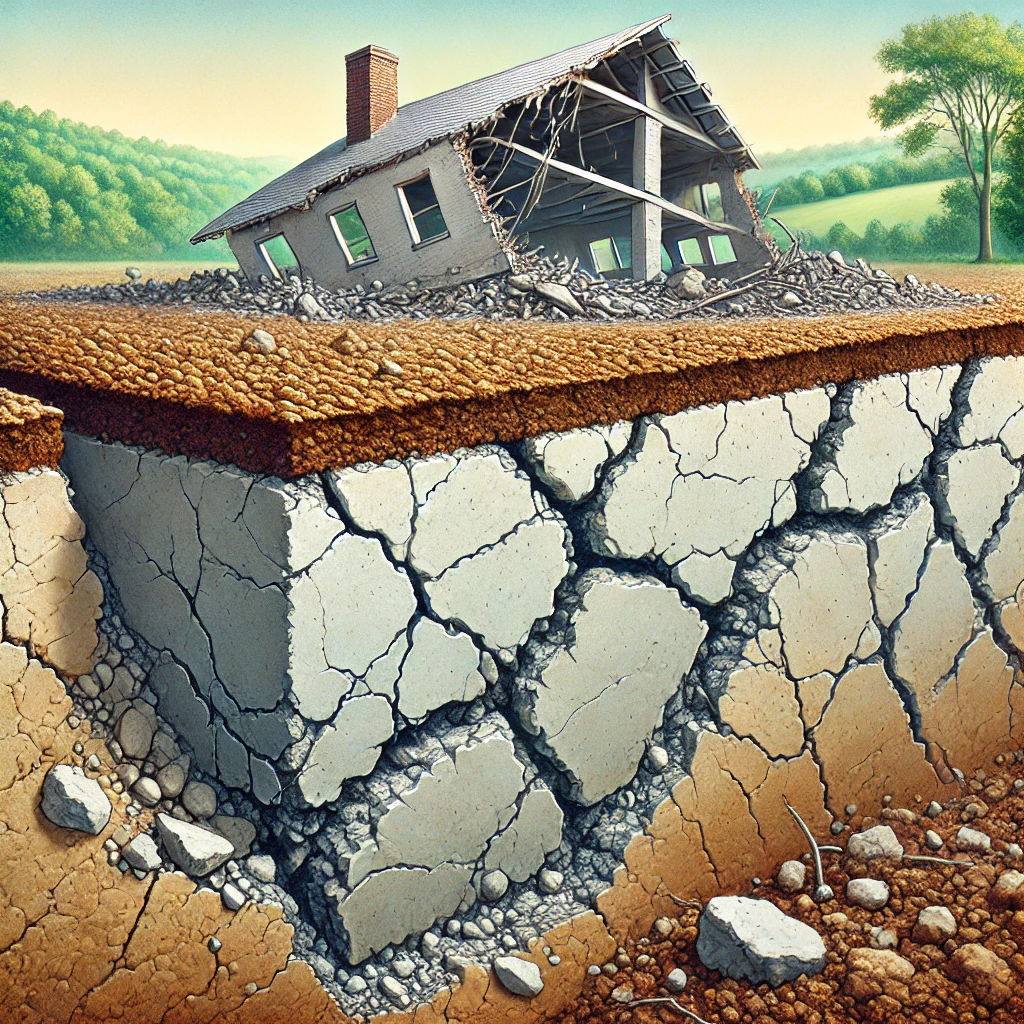
Concrete foundations in North Carolina face unique challenges due to varying soil conditions. The ingredients of soil, such as sand, silt, loam, and clay, affect how they behave under moisture changes, impacting the integrity of concrete structures. Understanding how soil types influence concrete damage is crucial for proper foundation repair.
Soil moisture plays a significant role in the potential damage to concrete structures. Different soil types respond differently to wet and dry conditions, which can lead to settlement or sinking issues. These challenges necessitate tailored solutions to restore and maintain the strength and durability of concrete installations. Reliable concrete repair involves assessing these soil conditions to implement effective repair strategies.
In regions with variable soil conditions like North Carolina, regular monitoring and timely repair are essential to prevent major structural issues. Construction practices and materials must account for the specific behaviors of local soils to ensure long-term stability and safety.
Assessing Soil Conditions in North Carolina
The variable soil conditions in North Carolina significantly impact the stability of foundations and the integrity of concrete structures. Key factors include the presence of clay and organic matter, moisture levels due to rain and flooding, and seasonal temperature changes.
Impact of Clay and Organic Matter on Foundation Stability
Clay soil is prevalent in North Carolina and poses challenges for construction projects. Clay particles can cause significant soil expansion and contraction, leading to a settling foundation.
High levels of organic matter in the soil can also affect foundation stability. Organic matter, while beneficial for soil health, can decompose and create voids, further compromising structural integrity. Proper soil management, such as regular soil testing and appropriate tillage, can mitigate these issues.
Effects of Rain, Flooding, and Moisture on Soil Expansion
The state’s climate involves considerable rainfall, which can lead to soil expansion and erosion. Moisture from heavy rain and flooding can saturate soil, causing clay particles to swell. This expansion exerts pressure on concrete structures, potentially leading to cracks and other damage.
Effective drainage systems are essential to manage excess moisture. Proper soil testing before construction can help identify potential issues with soil expansion. Using materials that are less susceptible to moisture damage can also be beneficial.
Seasonal Changes: Heat and Cold Influence on Soil Structure
Seasonal temperature changes in North Carolina, including hot summers and cold winters, affect soil structure. Heat can dry out the soil, causing it to contract, while cold weather can induce freezing and thawing cycles that lead to soil degradation.
These fluctuations can result in unstable soil that impacts the longevity of concrete foundations. Managing soil moisture and using frost-resistant construction materials can mitigate the seasonal effects on soil.
Regular monitoring and adaptive soil management practices are crucial for maintaining soil health and minimizing damage to concrete structures.
Strategies for Concrete Repair and Soil Management in NC
Effective concrete repair in North Carolina involves innovative foundation techniques and improving soil health. Addressing these issues requires a mix of structural repairs and soil management practices to ensure long-term stability and integrity.
Innovative Foundation Repair Techniques: Piers and Waterproofing
In North Carolina, foundation repair often involves the use of helical piers, push piers, and slab piers. These piers support foundations that have suffered from soil shifting, providing stable ground even in unsteady conditions.
Helical piers are screwed into the ground and offer a strong anchor for structures, while push piers use the home’s weight to push supports deep into the soil. Slab piers serve to lift and stabilize concrete slabs that have sunk due to soil movement.
In addition to piers, basement waterproofing and crawl space encapsulation prevents moisture from weakening foundations. Techniques include installing vapor barriers and comprehensive drainage systems to manage water flow.
Soil Health Improvement and Erosion Control Methods
Improving soil health is crucial for reducing erosion and enhancing the stability of foundations. North Carolina’s Department of Crop and Soil Sciences recommends practices like using cover crops and implementing no-till farming, which help maintain nutrient cycling and soil structure.
Nutrient management, particularly phosphorus and nitrogen, enhances soil fertility. Runoff control methods also play a significant role in maintaining soil health by avoiding nutrient loss and soil washing away.
By fostering healthy soil, erosion that could undermine foundation stability is minimized, supporting both agriculture and residential structures.
Cost Estimates, Inspections, and Regulatory Considerations
The costs associated with foundation repair can vary widely. Repair costs can be significant; for example, seawall repair costs can exceed $100,000 per project, emphasizing the need for accurate cost estimates.
North Carolina has specific regulations, especially for soil stabilization and foundation work. Ensuring compliance with these regulations is crucial in securing long-term warranties on repair work, which many companies provide for reassurance.
Careful inspection, regulatory adherence, and a clear understanding of potential costs are essential for successful concrete repair and soil management.
- 0shares
- Facebook0
- Pinterest0
- Twitter0
- Reddit0



